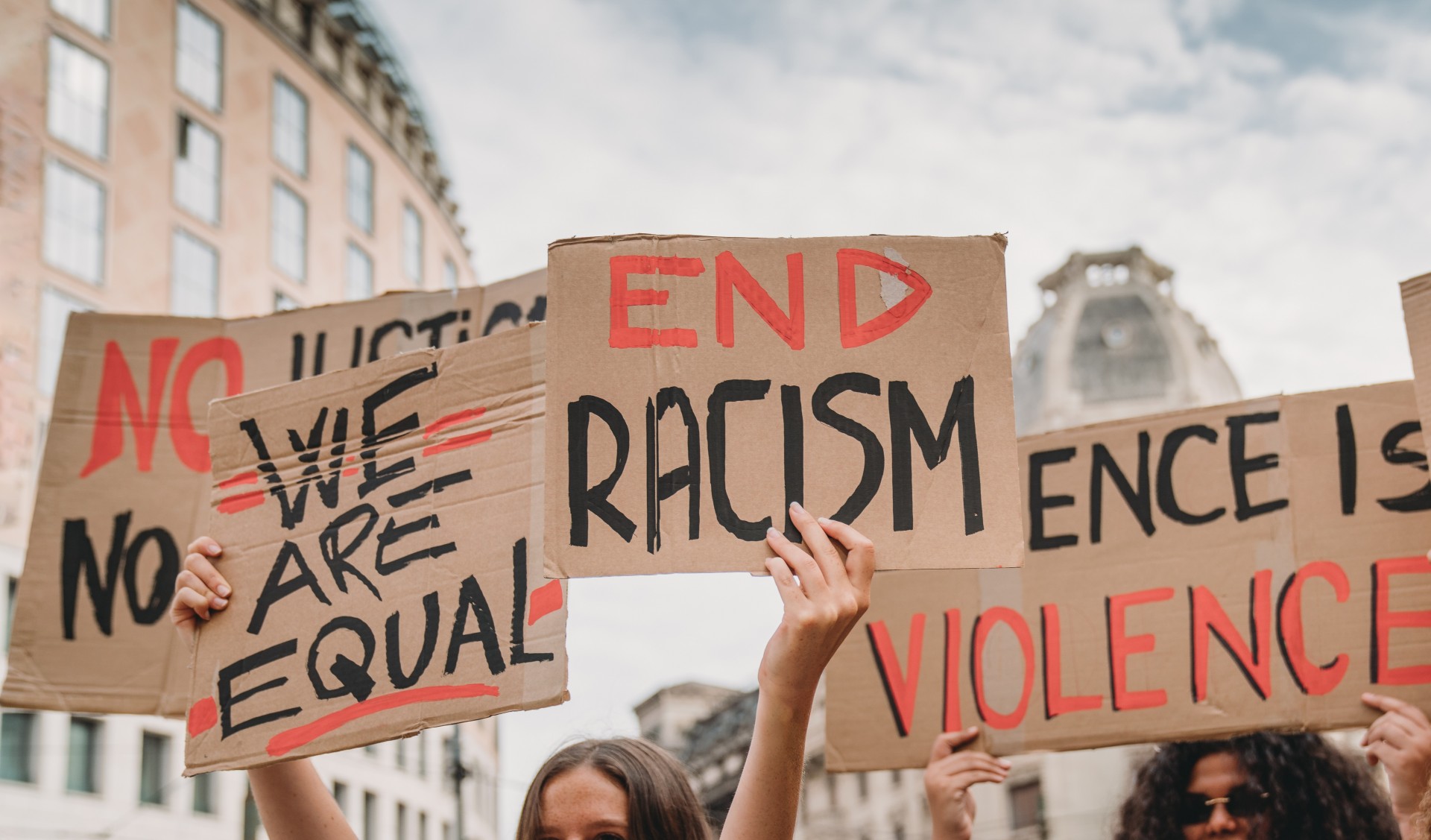The Evidence for Equality National Survey (EVENS) is a major new survey of racism and ethnic inequalities carried out by the Centre on the Dynamics of Ethnicity (CoDE), which reveals the extent of racism and racial discrimination experienced by people from ethnic and religious minority groups.
The racism reported by the survey’s respondents took different forms – physical, verbal or damage to property – and happened in all areas of life including education, work and when looking for housing.
Overall, almost one in six respondents had experienced a racially motivated physical assault, but over a third of people identifying as Gypsy/Traveller, Roma or Other Black reported that they had been physically assaulted because of their ethnicity, race, colour, or religion.
Over a quarter had been verbally abused or insulted because of their ethnicity, race, colour, or religion, and 17% reported experiencing damage to their personal property. Nearly a third reported racial discrimination in education and employment, and nearly a fifth reported racial discrimination when looking for housing.
Racial discrimination in education was reported by around half of those who identified as Roma, Any other Black, Black Caribbean and Mixed White and Caribbean, with 44% of Gypsy/Traveller respondents saying the same. Some ethnic groups also reported high rates of discrimination from the police, including over a third of people from the Black Caribbean, Any Other Black, Roma and Gypsy/Traveller groups.
People from ethnic minority groups are subjected to racial discrimination from their neighbours and while going about their everyday lives. Between 40-50% of people from Black Caribbean, Any other Black, and White and Black Caribbean groups reported facing racist abuse while out shopping, in parks, cafes or restaurants or on public transport. Almost one in six people also experienced racial discrimination from their neighbours, but this rose to one in two Other Black people and one in three Gypsy/Traveller people.
During the first year of the COVID-19 pandemic, Chinese, Other Asian and Eastern European people reported an increase in experiences of racial discrimination relative to other ethnic minority groups, and some ethnic groups reported increased policing during the first year of the pandemic – one in three Gypsy/Traveller people, and one in five Roma and Chinese people had been stopped by the police in this period.
“
Our data is stark evidence that racism is an enduring feature of British society today. However, tackling racism is not just a case of merely removing ’bad apples’ from workplaces and institutions such as the Metropolitan Police – we need to seriously transform the policies and procedures that enable racist discrimination to persist, in order to ensure better outcome and life chances for ethnic and religious minority people.
Dr Dharmi Kapadia, Senior Lecturer in Sociology at The University of Manchester
„
“The EVENS survey allows us to obtain a deeper understanding of the insidiousness and persistence of racial discrimination in the UK,” said Professor Laia Bécares, Professor of Social Science and Health at King’s College London. “We clearly document that there is a high level of racism in the UK which permeates all aspects of people’s everyday lives and impacts their health, wellbeing, and socioeconomic circumstances.”
“The innovative, robust survey techniques we used mean we have a larger dataset and detailed data on more ethnic and religious minority groups across a wider range of topics than ever before,” said Professor Nissa Finney, Professor of Human Geography at the University of St Andrews. “This makes our data a powerful tool for understanding, and reducing, ethnic and religious inequalities.”
“It can be easy to look back on the violent, explicit racism of earlier decades and think that racial discrimination is not a major problem in Britain today, but our data proves this idea wrong,” said Professor James Nazroo, Professor of Sociology at The University of Manchester. “Now we have this evidence, it is simply not acceptable to pretend racism does not exist and to carry on as before – EVENS is a wake-up call to make society fairer for everybody.”
EVENS is the most comprehensive survey of ethnic and religious inequalities for over 25 years, and was supported by the Economics and Social Research Council (ES/V013475/1 and ES/ W000849/1). It was produced in partnership with 13 voluntary, community and social enterprise groups.
Written by: Joe Stafford
